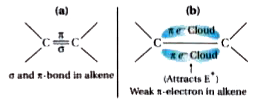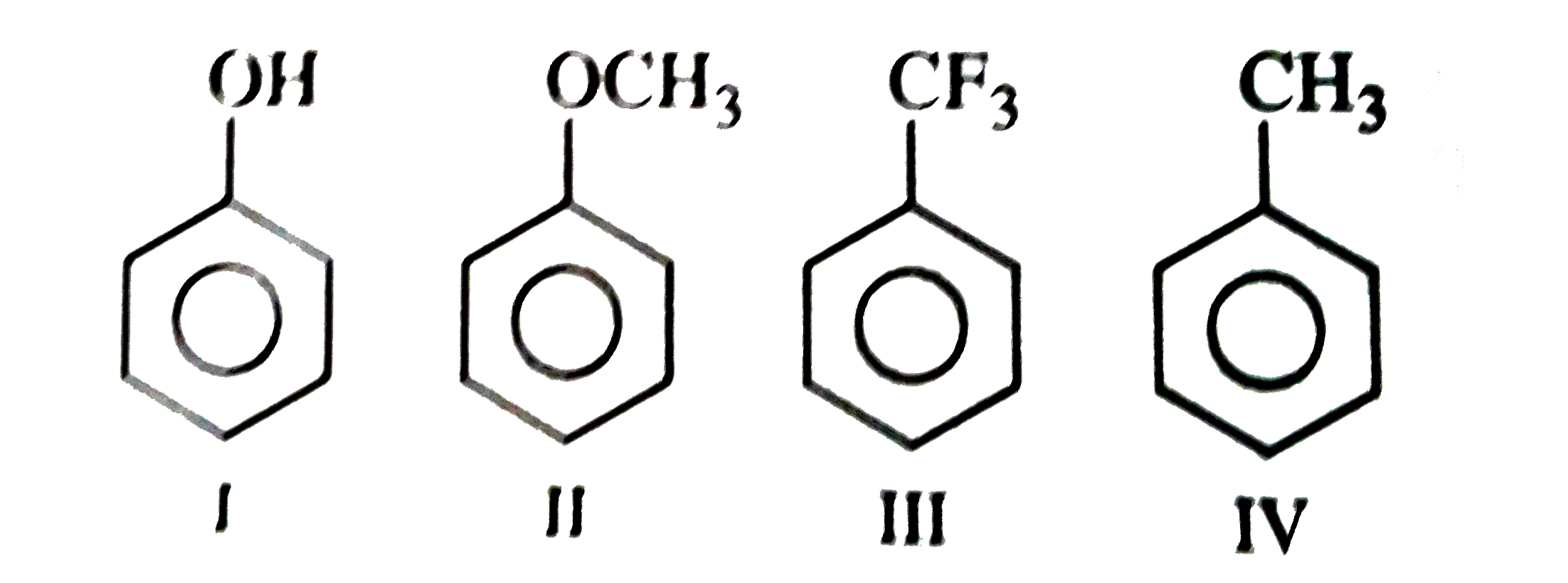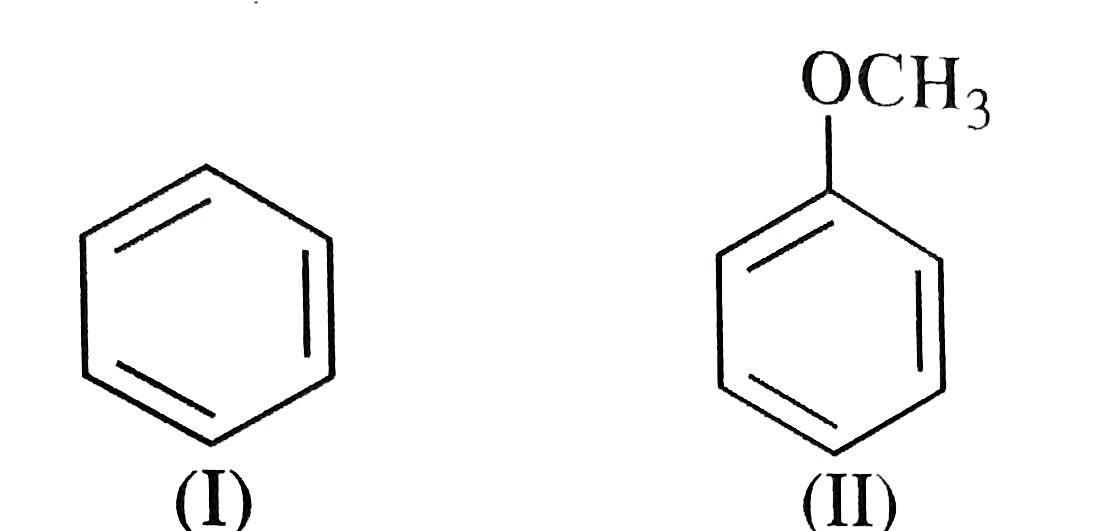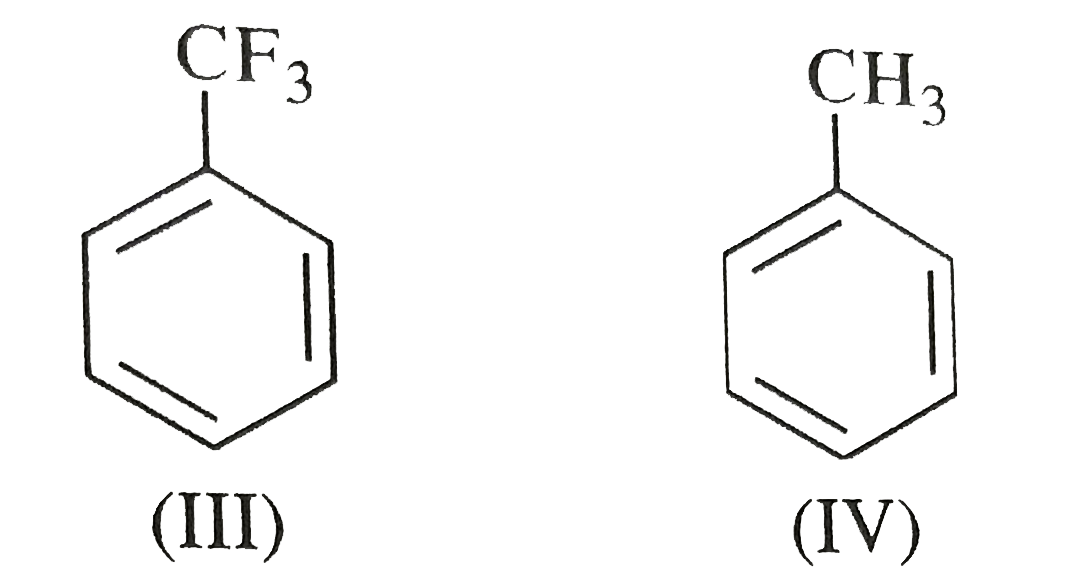Explain reactivity of alkene towards electrophilic.
In alkene, carbon-carbon has weak π-bond.

Electrons of π-bonds shows weak dynamic electrons. This type of π-electrons source is present in alkene.
So such type of reactant and compounds attack on π-bond and alkene and break π-bond easily and forms compounds having single bond. So alkane compounds easily gives addition reaction.
π-bond because alkene is more reactive and less stable than alkanes.
So, strength of C-C in alkane (bond ethalpy 384kJmol−1), is less then strength of C-C in alkene (bond enthalpy 681 kJ/mol).
Topper's Solved these Questions
- HYDROCARBONSBOOK - KUMAR PRAKASHANCHAPTER - HYDROCARBONSEXERCISE - SECTION - A
55 Videos
- HYDROCARBONSBOOK - KUMAR PRAKASHANCHAPTER - HYDROCARBONSEXERCISE - Section - B objective questions (short questions)
147 Videos
- EQUILIBRIUMBOOK - KUMAR PRAKASHANCHAPTER - EQUILIBRIUMEXERCISE - Question Paper from Module
7 Videos
- HYDROGENBOOK - KUMAR PRAKASHANCHAPTER - HYDROGENEXERCISE - Section-D NCERT Exemplar (Long Answer)
8 Videos
Similar Questions
Identify the incorrect statement / statement :
(i) Alkynes are more reactive than alkenes towards electrophilic addiction reaction
(ii) Alkynes are less reactive than alkenes towards electrophilic addiction reaction
(iii) Alkynes decolourise Br2 water
(iv) Addition of HBr to alkenes in presence of peroxide proceeds via Markownikoff's rule
View SolutionStatement-I : Alkyness are more reactive than alkenes towards electrophilic reagents like H+.
Because
Statement-II : The alkyl carbocation formed from alkene is more stable than the uinyl carbocation formed from alkyne.
View Solution
Knowledge Check
The correct order of reactivity of alkene towards an electrophile is mentioned in :
ACH2=CH−Cl>CH2=CH−OCH3BCH2=CHCl<CH2=CCl2CCH2=CH2>CH3−CH=CH2DCH2=CH−OCH3>CH2=CH−CH2−OHA : Alkynes is more reactive than alkene towards electrophilic addition reaction.
R : Alkynes form stable carbocation than alkene.AIf both Assertion & Reason are true and the reason is the correct explanation of the assertion, then mark (1).BIf both Assertion & Reason are true but the reason is not the correct explanation of the assertion, then mark (2)Cif Assertion is true statement but Reason is false, then mark (3)DIf both Assertion and Reason are false statements, then mark (4)Identify the incorrect statement / statement :
(i) Alkynes are more reactive than alkenes towards electrophilic addiction reaction
(ii) Alkynes are less reactive than alkenes towards electrophilic addiction reaction
(iii) Alkynes decolourise Br2 water
(iv) Addition of HBr to alkenes in presence of peroxide proceeds via Markownikoff's ruleA(i)&(ii)B(ii)&(iii)C(i)&(iii)D(ii)&(iv)
Alkenes are more reactive than alkynes towards electrophillic addition reaction, yet vinyl acetylene reacts with 1 mol of HBr at triple bond. Explain why.
View SolutionThe reactivity of alkene

towards hydrogen is :
View SolutionThe order of reactivity of the following towards electrophillic substitution reaction is

View SolutionThe order of reactivity of following towards electrophilic substitution is :


View SolutionThe reactivity of alkene

towards hydrogen is :
View Solution
